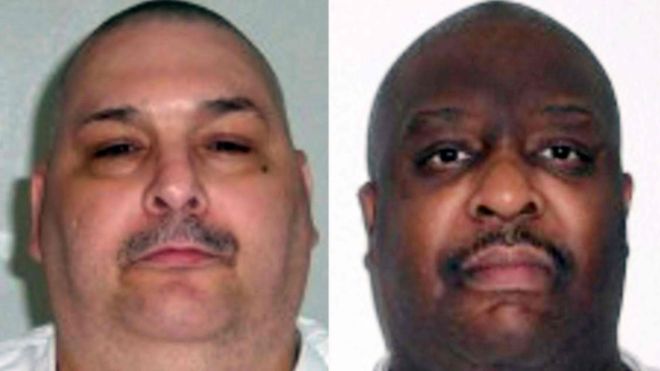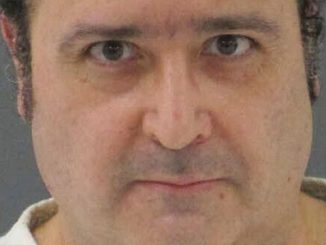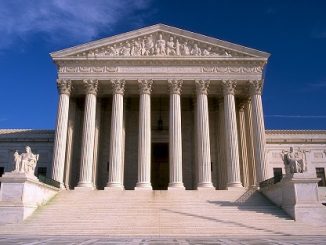
The state of Arkansas has executed two prisoners on death row after the US Supreme Court rejected their last-minute appeals.
Jack Jones and Marcel Williams were both sentenced to death for rapes and murders committed in the 1990s.
Arkansas controversially scheduled eight sudden executions when it found out its supply of a drug used in lethal injections expires in late April.
It is the first double execution on the same day in the US for 17 years.
The state’s decision to plan eight executions in just 11 days was prompted by the realisation that its stockpile of midazolam – one of three drugs used together in lethal injections – would expire at the end of the month.
Human rights groups, defence lawyers, and drug companies all objected to the decision.
But on Thursday, Ledell Lee became the first person to be executed in Arkansas since 2005, after the US Supreme Court rejected a challenge to the scheduling of the executions and the Arkansas Supreme Court overturned a ruling blocking the use of a different drug.
Both Jack Jones and Marcel Williams had filed their own legal challenges before their executions on Monday night.
Attorneys for Jones had argued he could suffer from a “torturous death” because he may be resistant to midazolam.
Lawyers for Williams had said it might be difficult to find a vein on their client for the lethal injection because of his 400lb (180kg) weight.
Williams was sentenced to death in 1997 for kidnapping, raping and murdering Stacy Errickson. He also abducted and raped two other women.
His execution was put on hold minutes before he was scheduled to die, as his lawyers raised concerns that Jones’ execution had been “inhumane”.
But a district judge allowed the execution to go ahead after a brief hearing.
Williams’ lawyers said that Jones was still moving more than five minutes after he received the injection that was supposed to make him unconscious.
But other witnesses quoted by local media disputed their version of events, arguing that Jones had showed no signs of distress.
Jones was convicted in 1996 of raping and strangling Mary Phillips and attempting to murder her 11-year-old daughter.
In his final utterance, he apologised to the girl he nearly killed, who is now an adult.
“I hope over time you could learn who I really am and I am not a monster,” witnesses quoted him as saying.
The two men were among eight that the state wanted to execute over the course of 11 days in April before its supplies of midazolam expired.
Four of the scheduled executions have been delayed by the courts. Another is scheduled for Thursday 27 April.
Like many US states, Arkansas has struggled to find the drugs it needs to carry out executions.
One of the legal challenges to the series of executions was lodged by McKesson Corporation, which makes the drug vecuronium bromide – part of the three-drug lethal injection cocktail.
The company claimed that the state had intentionally misled them, saying the drug would be used in health clinics for medical purposes. When McKesson found out it would be used in executions, it said it issued a refund and demanded the chemical be returned – which it never was. The state made no comment on the claims.
“We believe we have done all we can do at this time to recover our product,” the company said in a statement after the state Supreme Court overturned a brief injunction.
Human rights groups have been heavily critical of the accelerated pace of executions.
Amnesty International said Arkansas’ decision was a “shameful backslide against prevailing trends away from the death penalty”.
Ahead of Monday’s executions, a lawyer for the American Civil Liberties Union had called for them, and the execution scheduled for Thursday, to be cancelled.
“Carrying out these three executions on this schedule will violate the individualized consideration that the constitution and justice require and further overstep the bounds of basic human dignity,” Cassandra Stubbs wrote.
But earlier in April, Arkansas Governor Asa Hutchinson said he was fulfilling his responsibilities.
“I have a responsibility to the voters, I have a responsibility to my oath of office, but I also have responsibility to a higher power, God and eternity, and I understand that,” he said.
“I feel comfortable in my understanding of my responsibilities both in terms of faith and scripture and in terms of as governor.”
Source: bbc.co.uk






Be the first to comment